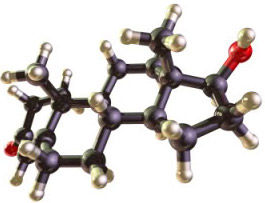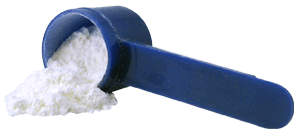D-ASPARTIC ACID REVIEWS: IS DAA EFFECTIVE?

Testosterone: it’s the most anabolic muscle building hormone in your entire body and is one of the key factors that determines how much muscle you can ultimately build.
More testosterone, more muscle. Less testosterone, less muscle.
It’s no surprise that “testosterone boosters” are some of the hottest muscle building supplements on the market.
Take a look and you’ll find an entire category of herbs, vitamins and other compounds promising huge increases in testosterone for improved muscle growth, fat loss and gym performance.
Tribulus, longjack, avena sativa and saw palmetto are a few of the more popular examples.
What do all of these supposed “testosterone boosters” have in common?
They’ve never been demonstrated with any reliable research to produce any significant increase in testosterone levels. Period.
Enter d-aspartic acid…
D Aspartic Acid Reviews – 30-40% Increase In Testosterone

D-aspartic acid is an amino acid found in humans that plays an important role in the production of luteinizing hormone (LH) and testosterone. LH is secreted from the pituitary gland and signals the body to increase its production of testosterone.
D-aspartic acid is gaining a lot of traction in the supplement world, as research on this amino acid has consistently shown 30-40% increases in testosterone when following a dosage of about 3 grams per day.
In one Italian study, 87% of the subjects showed significant increases in LH levels (33%) and testosterone (42%). Testosterone levels were only slightly elevated after 6 days but saw a large spike after 12 days, remaining there until 3 days after supplementation was stopped.
Sounds pretty good right? Well, don’t go running out to spend your money on a d-aspartic acid supplement just yet.
D Aspartic Acid Reviews – Is DAA Worth It?

Despite the seemingly promising notion of a natural compound that boosts test levels by 30-40%, I generally would recommend against DAA use for most people.
Why?
Well, to the average lifter, a 30-40% increase certainly sounds huge…
In reality, testosterone levels would need to be elevated to a far higher level than this in order to see changes in muscle mass, fat loss and overall body composition.
I’m talking about increases of several hundred to 1000%+.
There is currently no data that shows a relationship between d-aspartic acid supplementation and increases in lean body mass/decreases in fat.
Secondly is the issue of safety. DAA may turn out to be a perfectly safe supplement, but there simply isn’t enough human data available at this time to know for sure.
Many users of d-aspartic acid report unwanted side effects, such as mood swings, acne and anxiety. These side effects may be due to some other factors involved, but at this point I wouldn’t feel comfortable recommending DAA to my readers without further research.
D Aspartic Acid Reviews – Wrapping It Up

In terms of its use as a bodybuilding specific supplement, I can’t see any reason to go out and buy a bottle of DAA at this point. The 30-40% increase in testosterone you might achieve is probably not going to positively affect hypertrophy or fat loss, and I’d also like to see more data regarding its safety.
The only area where DAA supplementation might be useful is as a libido enhancer. If you’re in the 35+ age range, d-aspartic acid may have some application in this specific area. However, I’m only speculating here and can’t make any definitive recommendation.
Other than that, leave the d-aspartic acid on the shelf for now.
If you found this article helpful, make sure to sign up for your FREE custom fitness plan below...




